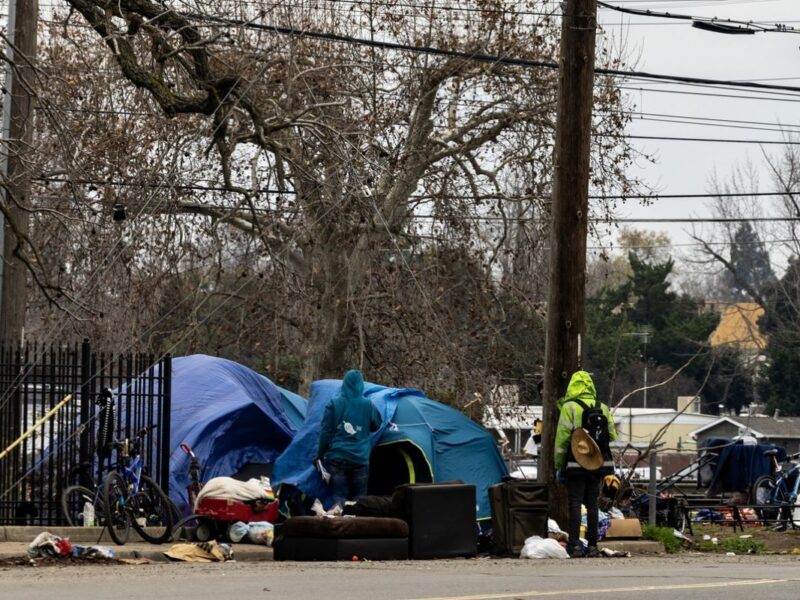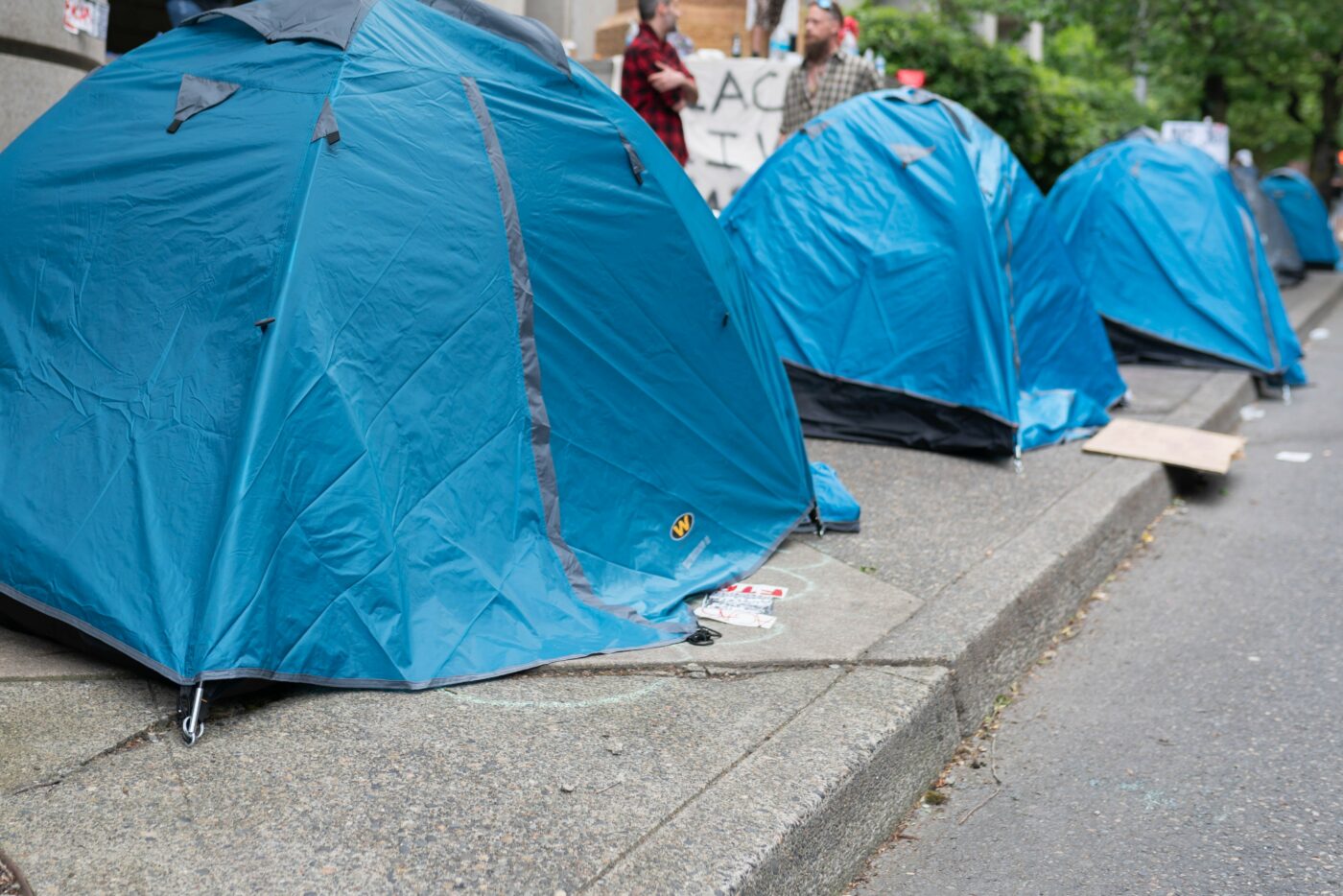Lately, Invisible People has been asking homeless people what terminology they prefer, i.e., “homeless,” “houseless,” “unhoused,” etc.
I’ve written about this subject before. The debate rages on. Some say we shouldn’t try to dress it up with fancier or nicer terminology. Just call it what it is: homelessness. And say, “I am homeless.”
Others disagree because the term “homeless” has such negative stereotypes attached to it that people tune out with disgust and become judgmental when they hear it. People trying to help “the homeless” and homeless people themselves seem divided on this subject.
I’ve had people say that I shouldn’t call myself “homeless” because I’m not on the actual street. It’s a disrespect to those who are on the street or were. So does that mean people living in vans or who wander from one place to another without permanent housing are only allowed to be called housing challenged? Or houseless? Or nomad?
Let’s make a list:
- homeless
- houseless
- unhoused
- nomad
Or phrases – I am:
- housing challenged
- experiencing homelessness
- priced out of housing
- a victim of the housing crisis
To me, they’re all valid. People should choose the term for themselves and not try to make it a rule that everyone must use the same terms.
I have seen this same battle take place in many other groups. In the autism community, for example:
- I am autistic
- I have autism
- I am an adult on the autism spectrum
- Aspie
- Autistic person
Within the autism community, I’ve seen people get into virtual fisticuffs over this.
I refuse to engage in that kind of negativity. It’s not worth it to me. I say things like, “I have autism” and “I’m an adult on the autism spectrum,” but I use different terminology in different settings or occasions.
The only term that has fallen entirely out of favor is “Asperger’s Syndrome” or “Aspie” because of the issues regarding Dr. Asperger. Therefore, I do not use those terms anymore. That diagnosis has been absorbed into the term “Autism Spectrum Disorder,” which offends me because I am simply wired differently.
I don’t think of it as a disorder. That is my personal feeling about my labeling. Each person should use what makes them comfortable.
I could sight other examples, but the bottom line is the same. People should use the term they feel is most comfortable and applicable to them, so long as it isn’t derogatory.
Using negative terminology would undermine the respect that people without housing seek. If you say, “I’m homeless,” you will risk people tuning out and judging you.
I have found that the word homeless gets a more jarring response. But if I say, “You know those people you hear about on the news who’ve been priced out of housing? Yeah, I’m one of them. I’m homeless.” In that case, I can use both the blunt term “homeless” and the more “palatable” terminology to get my point across.
Generally, I have found that going with the “priced out of housing” phrase first makes the listener more receptive. They see me as a victim of something they’ve been hearing about on the news. I’m not a stereotype.
Of course, you have to be realistic. I might change people’s minds about what a homeless person is or looks like. I advocate for the cause.
It’s been my experience, however, that many have made up their minds about homeless people and do not want their opinion challenged.
Why? Because once you see people as human and worthy, stepping over their bodies on the sidewalk near the coffee house you want to enter becomes harder.
In all fairness, so many people in this society are holding on by a thread themselves that they really cannot help homeless people much anyway. Even if you think you cannot make a difference, you can become an advocate. Help others see that the current state of affairs is a total system failure. It’s not a disproportionate number of people “choosing” to be “bums.”
Think of how ridiculous that sounds: In a culture that detests homeless people and anyone who needs charity and help, why would so many suddenly, intentionally choose to be homeless?
It’s important to realize that many people lack empathy and compassion. Many such people exist, whether they are sociopathic or psychopathic or any other condition causing a lack of empathy. They can never feel compassion for anyone, much less people they perceive as choosing homelessness.
But you don’t even have to be sociopathic to not care. Many people hate homeless people so much that they perpetrate violence toward these vulnerable individuals.
Throughout history, many words and phrases used as descriptors have fallen in and out of favor. We see that especially in the questions of ethnicity. Some terms are used for a while, then phased out because they are deemed offensive. This is not limited to those scenarios.
Sometimes terminology and words used will change to make them more accurate. One example might be the Latin word Bufo, which was used to describe most of the species of toads worldwide. Until recently, Bufo preceded the specific species name. But in the last few years, most species’ names have been changed, leaving only a handful of animals in the Bufo classification.
Now, when I see a toad hopping in upstate New York, I am supposed to say that I found an anaxyrus americanus and not a bufo americanus. Anaxyrus is used to express that this toad is from North America. This adds a layer of accuracy to things, but is it the same with homelessness?
So as I’ve asked before, when discussing the use of names and terms in modern society, do words matter? If so, how much do they matter?
Can one word or phrase make a difference in public perception? It’s a profound question.
While I think it’s important, many do not and are disgusted with over-the-top political correctness. Some critics say it’s fine to reject derogatory terms and words when talking about human beings of varying ethnicities, but homeless people? That’s going too far in their view. I cannot answer this for humanity. I only know that I will use the words and terms I feel are most effective and accurate for the situation. And I always choose my words carefully.











